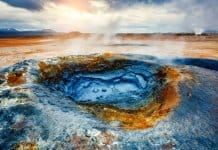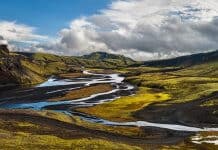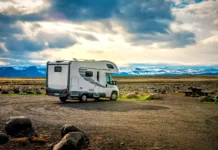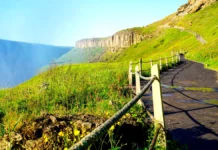Iceland has seen an influx of tourists in recent years. As we all know, this ends up creating a huge market for all these visitors. Like any tourist destination, there are always famous places that end up being mainly for the tourism sector. And sometimes, due to ignorance or lack of information, we end up wasting time or money. We’d like to give you a list of warnings for tourists and things to watch out for in Iceland. We wouldn’t want you getting caught off-guard during your trip.

The country itself is full of friendly people who sincerely want to help and will provide information for all those who come to discover their country. While there aren’t really many scams, most problems that tourists experience in Iceland arise as a consequence of going to a country that they don’t really know. And unfortunately, they haven’t been lucky enough to have someone warn them in advance about what they should or should not do or where they should or should not go.
Warnings for Tourists in Iceland – Traditional Icelandic Lopapeysa Sweaters
They just might be Chinese. The Lopapeysa is a typical Icelandic wool sweater that is woven with wool from local sheep. The sweaters have become a symbol for both locals and visitors alike. There are large companies that sell sweaters with the traditional pattern, but they’re made in China.
To be sure that your Lopapeysa is 100% Icelandic, handmade and made of Icelandic sheep’s wool, look for places that knit and sell them at the Reykjavik market. There are also sweaters that come directly from the Handknitting Association of Iceland. This body certifies that the product is made locally and by hand.
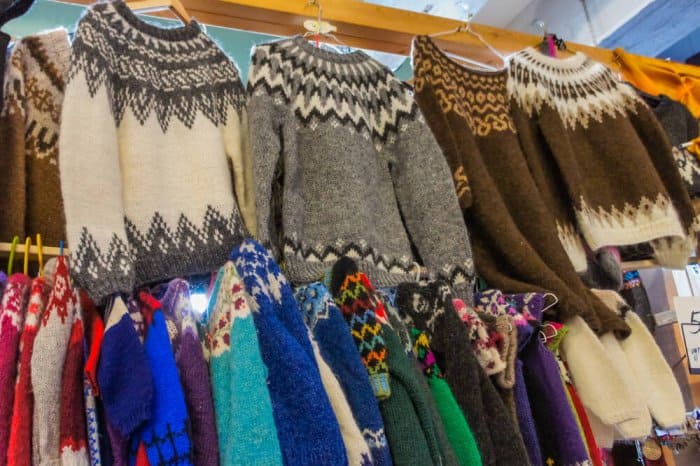
Warnings for Tourists in Iceland – Puffin Shops
It may sound like nothing now, but when you are in Iceland you will see these stores everywhere. Puffin Shops are a chain of souvenir shops and the puffin is the official mascot and logo of the company. In these stores, you’ll basically find anything related to Iceland. There’s absolutely nothing wrong with that, just know that a large majority of its products come from China. So if you’re looking for something authentically Icelandic, this is probably not your place.
Warnings for Tourists in Iceland – 24-hour Supermarkets
Are they extremely convenient? Absolutely, but you end up paying quite a bit for non-stop availability and access. If you don’t want your hard-earned Icelandic króna to fly out of your pockets, you’d better get away from these money traps. Some stores like 10/11 can cost up to 50% more than regular “low cost” supermarkets such as Bónus or Nettó. It sounds crazy but it’s true.
While talking about supermarkets, we’d like to mention something: beer. In Iceland, until not very long ago, alcohol was banned and currently, it can only be sold in stores run by the government or Vinbudin. That’s why the drink you’ll find in supermarkets which looks like beer is actually a type of Pilsner. The alcohol level is less than 2.25%. If you are looking for beer (3% minimum alcohol level) then you’ll have to go through Vinbudin.
Warnings for Tourists in Iceland – Bottled Water
A practical example of ignorance when traveling in Iceland is something very simple and a normal part of our day: water bottles. When people travel, they are often scared or unsure if the tap water is safe to drink. Out of comfort or fear, they spend their entire trip drinking bottled water even though the quality of local water is just fine.

This travel phenomenon happens here as well. You can definitely drink the tap water in Iceland and this is actually the preferable option. The tap water is free and is usually very fresh and of the highest quality. You’ll definitely find bottled water here, but in an already expensive country why not try to save some money? There’s no need to spend 3€ a pop on a tiny bottle of water when what you get from the tap is just as good.
If you don’t want to break the bank buying bottle after bottle, we recommend purchasing a refillable bottle that is free of BPA. It’s also quite common in Iceland to ask for tap water in bars and restaurants. This will make it easy for you to stay hydrated and to keep your pockets filled.
Warnings for Tourists in Iceland – Exchange Places
This is a classic among the classics and is by no means exclusive to Iceland. The exchange rates offered by exchange places are usually much worse than the rate offered by Icelandic banks. A better idea may be to withdraw cash directly from an ATM. Obviously, check with your bank first to see if taking out cash abroad involves some sort commission or not. It’s also good to know that in Iceland you can pay by card basically anywhere, regardless of the amount.
Things Tourists Should Watch Out For in Iceland
We hope these guidelines can help you have an enjoyable, authentic and somewhat cheaper trip to Iceland. Have a great time.






